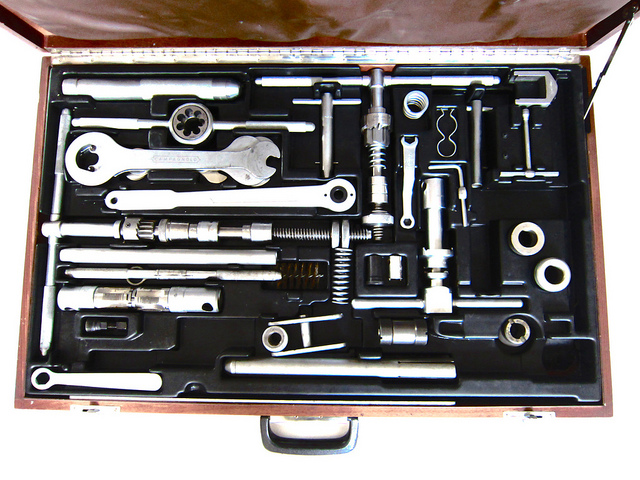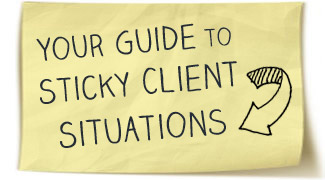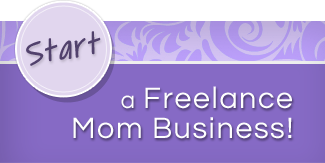
When you are just starting a new freelance business, the initial time investment to get things rolling can seem immense—enough to make many continually postpone getting their new business off the ground or moving from getting clients through sites like Elance to having their own marketing and platform.
Nearly every day, from my own mentoring clients and members of various forums and groups, I hear the same questions:
Do I really need business cards? Does anyone actually use them anymore? Isn’t everything digital?
Can I get clients without a website? It’s such a big investment for me right now.
What should I be charging? Should I publish my prices?
The initial planning and branding that goes into a new business may have gotten easier with the web.
In theory, anyone can start easily selling something to someone they’ve never met and, bam!, they have a business.
But in many ways, these “new” digital ways of doing business have actually made branding and marketing much more daunting to new business owners.
So, once and for all, I want to break down some of the most common questions about what you do and do not need for your business.
1. Do You Need a Website for Your Business?
Let’s get this one out of the way right off the bat.
In today’s world, if your business does not have a website, it does not exist.
But you don’t need to take this too far.
You do NOT need to have a flash website with a blog and 100 pages of content….
You do NOT need to pay a designer $2000 to create a website for you.
You DON’T need to also have a Facebook page, Instagram account, and Google+ business page.
You just need a storefront. A place that people can google to see that you are a legitimate business, not someone trying to scam them on email. Where they can see what you are about if they aren’t ready to email you yet.
Without a website that is clean, simple, and clearly shows in just a few seconds what you are about, I can tell you with certainty that you are losing business.
And in addition to owning a domain (wordpress.yourbusiness.com does not count as a website!), part of having a legitimate business website is having your email come from the same URL, such as yourname@, info@, or [email protected].
2. Do You Need Business Cards?
This is, I think, one of the most unusual questions I see in the digital age.
People today who make their entire living online, particularly with clients that they’ve never met, often think that business cards are something that they can put off getting, because when do they really need them?
However, after one industry networking event or conference without business cards, you’ll learn that business cards are just as necessary today as ever.
Plus new technology gives you the opportunity to get even more value from business cards than ever before.
When you put images, an explanation of your business, or any other different and catchy thing on your business cards, they are not only a way for people to get in touch with you, but a memorable piece of marketing that differentiates you from the competition.
For cards that look like they came from an expensive graphic designer (that you actually set up very easily yourself), spend a little time poking around Moo.com.
The cards are pricier than VistaPrint and similar websites that constantly pop up in your ad display, but they are more than worth it for how professional they look and eye-catching they are.
3. Do You Need A Price List?
I wrote a little while back specifically about where you should display your prices on your website, as that is a separate issue.
But I am always amazed how many Freelance Moms I talk to that do not have set rates for the different services they provide that they codify and update often.
There are two issues here:
- being clear on what services or products you provide
- being clear on how much those things must be sold for
When you first start out, it’s easy to feel like you will do work that comes along or that you can do many different things, and that you want to price based on the specifics of the project.
And while it is great—and necessary—to price around certain specific characteristics of a client, such as their budget or how difficult they are to work with, you waste a lot of time setting up new clients if you do not have baseline products or services available and minimum numbers on how much those things cost.
4. Do You Need A Brochure?
A brochure, as in a colorful piece of printed material that you can send in the mail or hand out to prospects, has gone the way of so much printed mail these days.
It’s become obsolete!
If you do hand out printed materials, you are seen as a “dinosaur” or, worse, wasteful, disconnected, and unkind to the environment.
But that doesn’t mean that you don’t need a brochure.
It sounds like a contradiction, but today, more than ever, you need to have a nicely laid-out PDF ready and available that says who you are, how you benefit customers, what services you provide, and probably how much they cost. Just like the old days.
But if you aren’t getting these items printed on full color glossy paper, what are you doing with them?
This piece of marketing collateral, and let’s call it that instead of a brochure, is what you send to prospects who send you a cold inquiry, what you send to follow up on introductory coaching calls, and what you send after you meet someone at a conference or trade show.
5. Do You Need a Resume?
This is actually the trickiest point on this list, as a resume is the one thing that you could probably have a very successful business without…in a way.
Resumes, as static pieces of paper—or today more commonly PDFs—listing the places that you’ve worked, the computer programs that you know, and where you got your degree, have largely been replaced by your personal website or LinkedIn for the purpose of showing your experience.
I would go so far as to say that for Freelance Moms, LinkedIn is the new resume, and you absolutely must have a complete profile on LinkedIn so that prospects can see that you are legitimate and have experience that can be publicly validated.
The point of having an actual resume has changed today.
In some cases, you do still need a formal listing of your background and qualifications to take on project work or clients at many companies that have a traditional HR hiring process and contractor bidding or selection system.
We’ll talk more in depth about resumes next week, because I think this is the main piece of personal marketing that many of us overlook the importance of.
Having a well put together resume that converts clients on its own is one of the things that makes clients know, immediately, that you are a serious professional who gets how business works.
In the meantime, let me know via email or in the comments:
Do you have all of the marketing elements on this list? What are you missing? What is holding you back from creating that piece?





